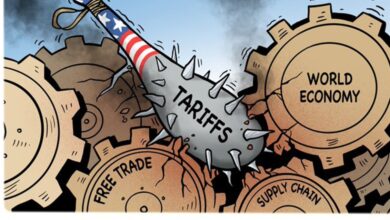Crisis of Journalism: NewsClick Controversy and Press Freedom in India

Crisis of Journalism: NewsClick Controversy and Press Freedom in India
In a stunning development that has sent shockwaves through the Indian media landscape, the special cell of the Delhi Police conducted raids on the residences of several journalists associated with NewsClick, a prominent news portal known for its investigative journalism. This operation unfolded against the backdrop of a swirling controversy surrounding allegations of funding from China that has rocked the organization to its core.
The raids, carried out by the Delhi Police, were a brazen move that has raised concerns about the state of press freedom in India. Journalist Abhisar Sharma, a prominent figure linked to NewsClick, took to social media platform X to report that his laptop and phone had been confiscated during the raid. This incident sent shockwaves through the journalistic community and ignited a fierce debate about the boundaries of media freedom in the country.
The controversy surrounding NewsClick deepened when the Enforcement Directorate, a financial investigation agency in India, initiated legal action against the news portal. The agency alleged that NewsClick had received funding from China, a charge that has significant implications given the geopolitical tensions between the two nations. The allegation of foreign funding raised concerns about the organization’s editorial independence and its ability to maintain impartiality in its reporting.
NewsClick, founded on the principles of investigative journalism and fearless reporting, has been a prominent voice in India’s media landscape. It has been known for its in-depth coverage of various issues, including politics, economics, and social justice. However, these recent developments have cast a shadow over its journalistic integrity and credibility.

The allegations of financial ties with China have drawn widespread attention, given the global context of increasing concerns about foreign influence in media organizations. China’s influence in international media has come under scrutiny in recent years, with accusations of propaganda and manipulation. NewsClick’s purported links to China’s funding have, therefore, sparked fears of potential interference in India’s domestic affairs.
NewsClick, on its part, has vehemently denied any wrongdoing and has emphasized its commitment to independent journalism. The organization’s leadership has maintained that it has adhered to all legal and ethical standards in its operations. However, the Enforcement Directorate’s actions have raised questions about the extent of the evidence it possesses and the gravity of the alleged financial misconduct.
The Delhi Police’s raids on the homes of journalists associated with NewsClick have intensified concerns about press freedom in India. Journalists and media organizations play a vital role in any democratic society by holding those in power accountable. These raids have ignited a debate about whether such actions infringe upon the fundamental principles of freedom of the press and the right to free speech, both of which are enshrined in India’s constitution.
It is important to note that India has a vibrant and diverse media landscape with numerous news outlets representing various perspectives and ideologies. However, the recent incidents involving NewsClick have triggered discussions about the challenges faced by journalists in maintaining their independence and objectivity, particularly when financial interests are involved.

As this controversy unfolds, it remains crucial for all stakeholders, including the government, law enforcement agencies, media organizations, and civil society, to engage in a constructive dialogue that respects the principles of press freedom and transparency. The outcome of the investigations into NewsClick’s alleged funding from China will undoubtedly have far-reaching implications for the future of journalism in India and its role in shaping public discourse.
The events surrounding NewsClick have also brought to the forefront the complex issue of foreign funding in media organizations. While foreign investment can contribute to the growth and diversification of the media landscape, it can also raise concerns about potential biases and influence from external actors. Striking a balance between financial sustainability and editorial independence is a challenge that many media outlets worldwide grapple with.
The situation has prompted calls for greater transparency and accountability in media funding. There is a growing demand for media organizations to disclose their sources of funding and ensure that they remain immune to external pressures that could compromise their journalistic ethics. This incident has sparked discussions on whether there should be stricter regulations or oversight mechanisms in place to prevent undue influence from foreign entities.

Furthermore, the global implications of this controversy cannot be overlooked. In an interconnected world, where information flows seamlessly across borders, the alleged financial ties between a prominent Indian news portal and China have implications not only for India but also for the broader international community. It underscores the importance of scrutinizing the role of foreign actors in shaping narratives and influencing public opinion through media outlets.
As the investigations into NewsClick continue and the legal proceedings unfold, the case has become a symbol of the delicate balance that journalists and media organizations must maintain in a rapidly evolving media landscape. The outcome of these events will undoubtedly shape the future of journalism in India, impacting not only the freedom of the press but also the ability of media outlets to maintain their credibility and independence in the face of evolving challenges and scrutiny.




